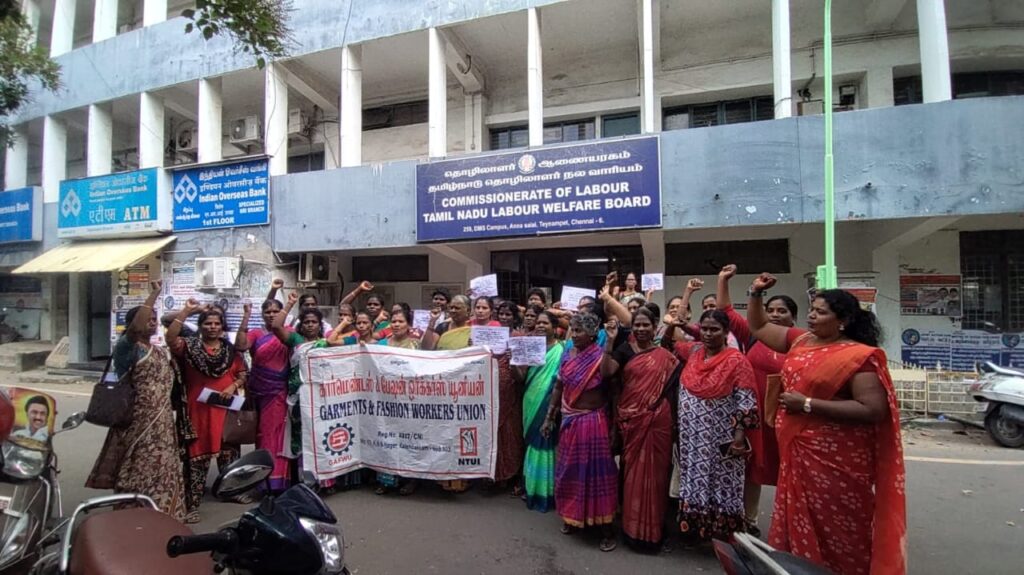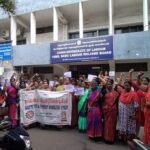14 February, 2024On 12 February, the Garment and Fashion Workers’ Union (GAFWU), affiliated to IndustriALL through Unions United, protested outside the labour commissioner’s office in Chennai, India, against the prolonged delay in the notification of the new minimum wage.
Under the Minimum Wages Act state governments in India are required to increase the minimum wage every five years. However, for garment workers in Tamil Nadu this hasn’t been the case. The last time the Tamil Nadu state revised the minimum wage was in 2014, a decade late. The increase was never implemented because more than 500 manufacturers took the matter to court, claiming that it would be practically impossible to pay the new wage.
Garment workers in Tamil Nadu currently earn in the range of INR9875 (US$119), for the lowest category to INR10514 (US$127), for the highest category. With the implementation of the new minimum wage, the monthly wage will range between INR15211 (US$183), for the lowest category, and INR16379 (US$197) for the highest category.
In 2016, the court ruled in favour of workers and upheld the wage notification. The court ordered manufacturers to pay the revised wage immediately along with inflation linked allowance and back wages from December 2014. The new wage was yet again not implemented because manufacturers filed several suits at the Supreme Court.
In November last year, when the filed petition was heard, the Supreme Court observed the state government’s inaction to revise the wages of garment industry workers, for the last nine years. The court directed the state to take corrective measures immediately.
On 6 February when the case was brought back to the Supreme Court, through a special application by GAFWU, union members present noted that the judge was appalled to see that the revised wage notification had not yet been issued by the state.
Responding to protesting workers’ demands, the deputy commissioner of labour assured workers that the wage would be determined in accordance with the draft notification of 2014, before the next Supreme Court hearing.
Gautam Mody, convener of Unions United and member of IndustriALL’s executive committee, says:
“Workers at the bottom end of the pyramid are being pushed to the wall while employers walk away with profits and governments just look the other way. We need stronger and more robust mechanisms to deliver a just minimum wage to stop wage arbitrage in the global supply chain.”
V.R Jaganathan, general secretary of the Indian National Textile Workers Federation (INTWF), says:
“Minimum wages in India are low and poorly implemented, which has a negative influence on workers and their ability to lead a decent life. We must prioritize living wages and ensure their effective implementation in all states.”
IndustriALL general secretary, Atle Høie, says:
“The Indian government must force the new minimum wage on the industry. It is appalling that industry can get away with this obstruction for so many years. IndustriALL calls for immediate action to ensure disbursement of rightful wages of workers which has been denied to them.”



